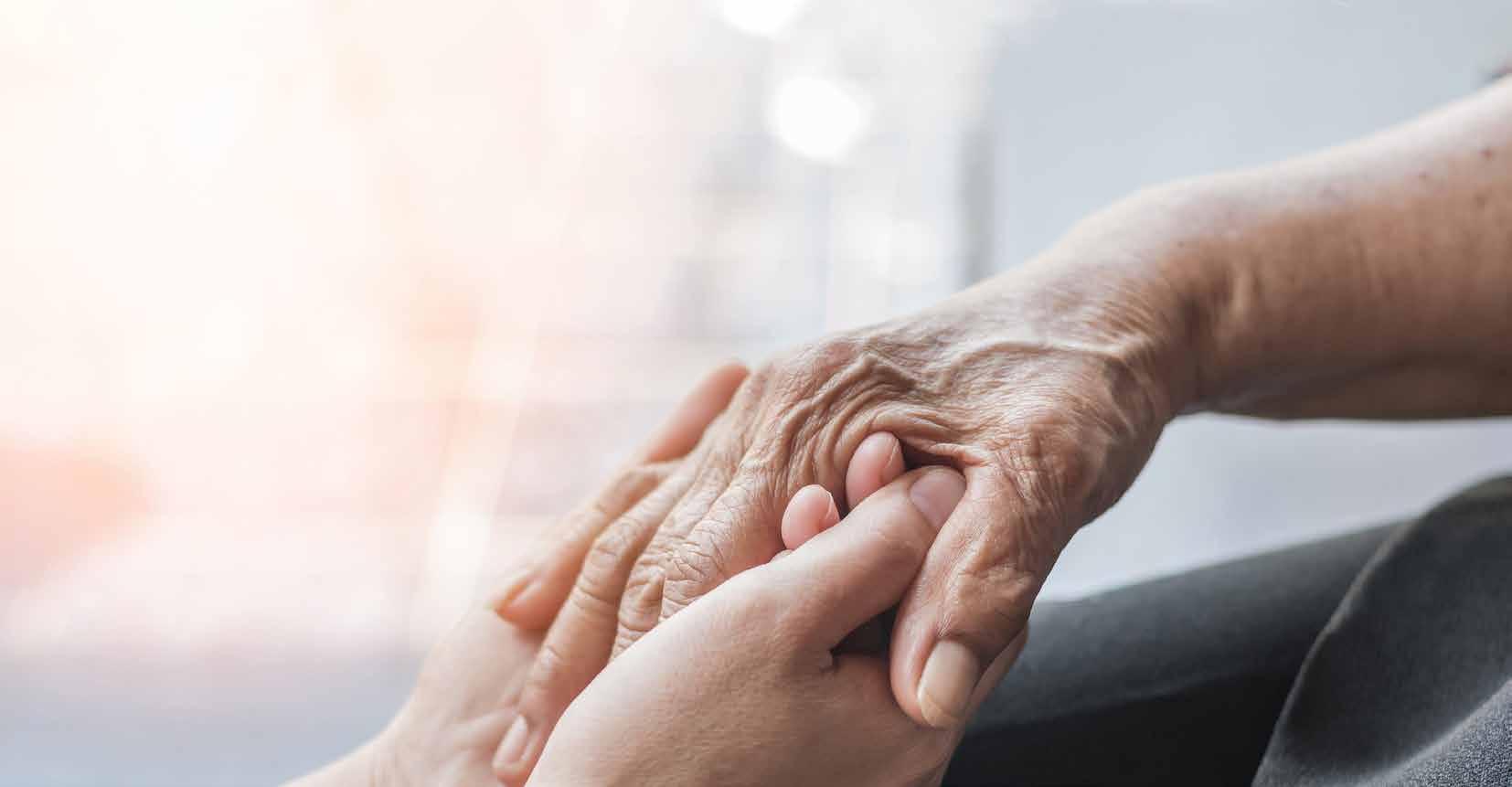When it’s Time to Let Go
This brochure is designed to help you understand, anticipate, and respond to the signs you might notice before, during, and after your loved one’s death.
While not everyone has been present when someone dies, it’s important to know that the moment of death is often peaceful.
Caring for someone in their final weeks and days can be physically and emotionally challenging. A range of feelings and emotions may arise during this time, and that’s completely normal.
The Hall & Prior palliative care team is here to support you through this experience. Palliative care focuses on improving the quality of life and easing discomfort for people with life-limiting conditions such as advanced cancer or those approaching the end of their lives due to age-related issues.
You may be concerned that your loved one’s death will be painful or distressing to witness. However, rest assured that the process leading up to death is often very calm. The body gradually winds down over days, and death itself is usually peaceful. Should restlessness or discomfort arise, it can be managed with medication to minimize any distress.
It’s important to remember that not all the signs described in this guide will be present for every person, nor will they occur in any specific order. These changes can happen anywhere from a few hours to several days before death, and they are all part of the natural, slow process of the body letting go.
If you notice any changes that concern you, don’t hesitate to ask for help. The Hall & Prior palliative care team will be in close contact during your loved one’s final stages and is here to support you.

Take comfort in knowing that your presence is incredibly valuable. Simply sitting with your loved one, holding their hand, and speaking softly can offer them immense comfort, even if they do not respond. Never underestimate the power of just “being with” rather than feeling pressured to “do for” them.


What to Expect When Your Loved One Dies

Changes to expect and how you can help
Appetite and Thirst
Your loved one’s appetite and thirst may decrease, and they may lose interest in eating or drinking. While this might be concerning, it is a natural part of the process and isn’t painful. Offer small sips of water or a moist mouth swab for comfort. Our team can also demonstrate how to care for their mouth. Avoid trying to feed them if they cannot swallow, as this could cause discomfort or harm.
Sleeping And Alertness
As the body’s systems slow down, your loved one may sleep more, become drowsy, or be difficult to awaken. Talk to them when they seem most alert, but also respect their need for rest. There’s no need to speak loudly or shake them - just offer a gentle, soothing presence.
Temperature Changes
Temperature fluctuations are common. Hands, feet, and legs may become cooler, while other parts of the body might feel hot and clammy. Skin may also take on a blotchy or darker appearance as circulation slows, but this is a normal part of the dying process.
If your loved one feels cold, use light bedding to keep them comfortable. Avoid excessive heat, which can cause restlessness. If they feel hot, a fan or cool damp cloths can help.
Breathing Patterns
Breathing may become irregular, with periods of rapid breathing or long pauses between breaths. Breaths may also become shallow or noisy, accompanied by gurgling or other sounds. These changes are a normal part of the dying process and are not painful for the person.
Secretions
As the body’s reflexes slow, saliva and mucus may accumulate in the throat, causing gurgling or bubbling sounds. This can be unsettling for caregivers, but it typically doesn’t cause distress to the person. Turning your loved one onto their side or gently raising their head can help. Our team can also provide medication to manage these secretions and improve comfort.
Restlessness
Changes in circulation and other bodily processes can lead to restlessness or agitation. Speaking in a calm, soothing voice, lightly massaging their hand or forehead, or playing familiar music may have a calming effect. If the restlessness persists, please inform the palliative care team, who can offer medications to help ease this discomfort.
Incontinence
As your loved one consumes less fluid, urine output may decrease, and the urine may become stronger in smell and darker in colour. Not everyone will experience incontinence, but if it does occur, there are pads, absorbent sheets, and other aids to ensure comfort for everyone involved. If you have concerns, our palliative care team is ready to help.

How to Recognizse When Death Has Occurred
• Breathing stops
• No pulse or heartbeat can be felt
• The person cannot be awakened
• Eyelids may be partially open
• The mouth may be open
• Pupils may be fixed
What Should You Do Next?
You don’t need to contact anyone immediately unless you wish to. Take your time and allow yourself the space to process. However, you should contact the palliative care team so they can guide and support you during this time.
If you are sitting with your loved one and think they have passed you can contact the nurse or carer on shift.
They will then phone the funeral directors of your choice and your loved one will be taken there within six hours.
You can sit with them until they arrive. Our palliative care team will help you with these arrangements and offer additional support.


Karingal Green is happy to work with the funeral home of your choice. After a loved one passes, Karingal Green will notify the family, emergency contacts, and the funeral home as per the family’s wishes.
The Karingal Green team will work directly with the selected funeral home to arrange for the timely and respectful transfer of your loved one.
The funeral home will arrive at Karingal Green at the pre-arranged time. The clinical staff will ensure the transfer is handled with dignity and care.
Funeral home pickups typically occur within a few hours to a day following passing, depending on family preferences and arrangements.
The Karingal Green Team will remain in communication with family members throughout the process to ensure all needs and preferences are met.
If you have any questions or need assistance with the funeral arrangements, please contact the Karingal Team.

